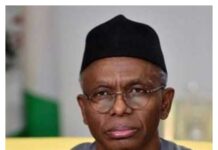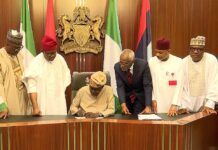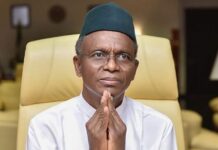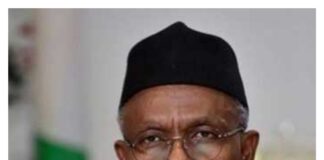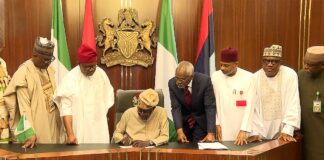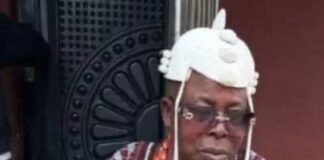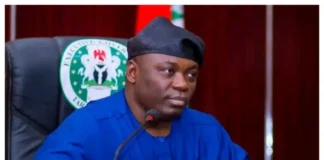The administration of President Muhammadu Buhari has shown overarching favouritism in handing out important federal positions to particular ethnic groups, a U.S. 2020 report on human rights practices in Nigeria has said.
Though the report agreed that Buhari complied with the minimum constitutional requirements to appoint cabinet ministers from all the 36 states of the federation, it pointed out that “traditional relationships were used to pressure government officials to favour particular ethnic groups in the distribution of important positions and other patronage.”
Buhari has long faced credible charges of nepotism over his evident favouritism in appointing cronies from his northern Fulani base to essential public offices even when there are better-qualified persons for such positions from other parts of the country.
People’s Gazette had in the past uncovered many actions that cast the president as a sectional leader.
In one report, The Gazette detailed how the president plotted to ease out a southern police chief, legally in line for appointment as Inspector General of Police, to clear paths for a northern IG. Despite the report, Mr Buhari went on to retain Mohammed Adamu as police inspector-general, ignoring his retirement after 35 years in service — the first of such in the history of Nigeria.
The Gazette also reported how aides of the president such as Yusuf Sabiu, Bashir Ahmad and others landed highly-courted federal appointments without cognate experience or capacity.
In 2018, Mr Buhari removed Matthew Seiyefa from office as the director-general of the State Security Service (SSS), replacing him with Yusuf Bichi who had long retired from service prior to his recall over apparent section considerations. Mr Bichi has himself been overfilling the SSS with people from his northern region, The Gazette uncovered last September.
The “federal character” principle, enshrined in the Nigeria’s Constitution, stated that the government must ensure that appointments to public service institutions fairly reflect the linguistic, ethnic, religious, and geographic diversity of the country.
By this, all high-level positions must be distributed to persons representing each of the 36 states or each of the six geopolitical regions. This has not been the case, the U.S. suggested.
Responding to the president’s new year broadcast, civil rights advocates Human Rights Writers Association of Nigeria (HURIWA), blamed Mr Buhari’s nepotistic appointments in the military, police, customs, immigration, customs as well as board appointments at the NNPC and NPA, among others, for raging division and insecurity in Nigeria.
“What the President does is to practise his deep-rooted nepotism and favouritism in appointments, whereby he prefers his fellow Fulani/Hausa northern Muslims to hold such strategic portfolios as heads of Department of States Services; Inspector General of Police, Comptroller Generals of Customs and Immigration; Director-General of National Intelligence Agency (NIA) and the Nigerian Security and Civil Defence Corps,” the group said.
HURIWA added that Mr Buhari’s nepotistic and skewed appointments are the most treacherous acts of corruption and a grave threat to Nigeria’s national security.
The group further held that such illegal practice offends sections 14(3) and 42(1) of the Nigerian Constitution of 1999 as amended, which speak to the twin critical components of Federal Character principles and the absolute delegitimisation of discrimination on the basis of ethnicity, religion or political affinities.
Under Buhari’s administration, the Central Bank of Nigeria and the Nigerian National Petroleum Corporation (NNPC) have employed children of politicians and persons said to be biologically related to the president.
Following the president’s nomination of Yusuf Buratai and other service chiefs as non-career Ambassadors-Designate, former lawmaker, Muhammad Junaid, called on the National Assembly to pass a law to stop Mr Buhari’s nepotism and introduce anti-nepotism statutes like the United States.
“I think to avoid this kind of mediocrity by Buhari and his government, it is better for the NASS to establish a marker that if you have been a service chief or senior general or whatever, you cannot be appointed into a civilian office until you have spent a certain number of years out of service.
“So Nigeria should take a leaf from the Americans because it will avoid this kind of nonsense. People using their friends or relations or in-laws to give them a revolving door, once they are out of uniform they immediately get into a top political assignment which confirms the nepotism of Buhari in the history of this country.
“So it is important for the NASS to now step in and establish either a resolution or a law”, Mr Mohammed, who passed on in February at 71, added.
A spokesman for the president did not return a request seeking comments about the U.S.’ nepotism charges, but the president has frequently defended himself against allegations of lopsided filling of key federal positions. Mr Buhari said the claims were being overblown by his political detractors, often pointing to some positions like the CBN governor and head of the navy that went to southern Christians.
Culled: The Gazette


